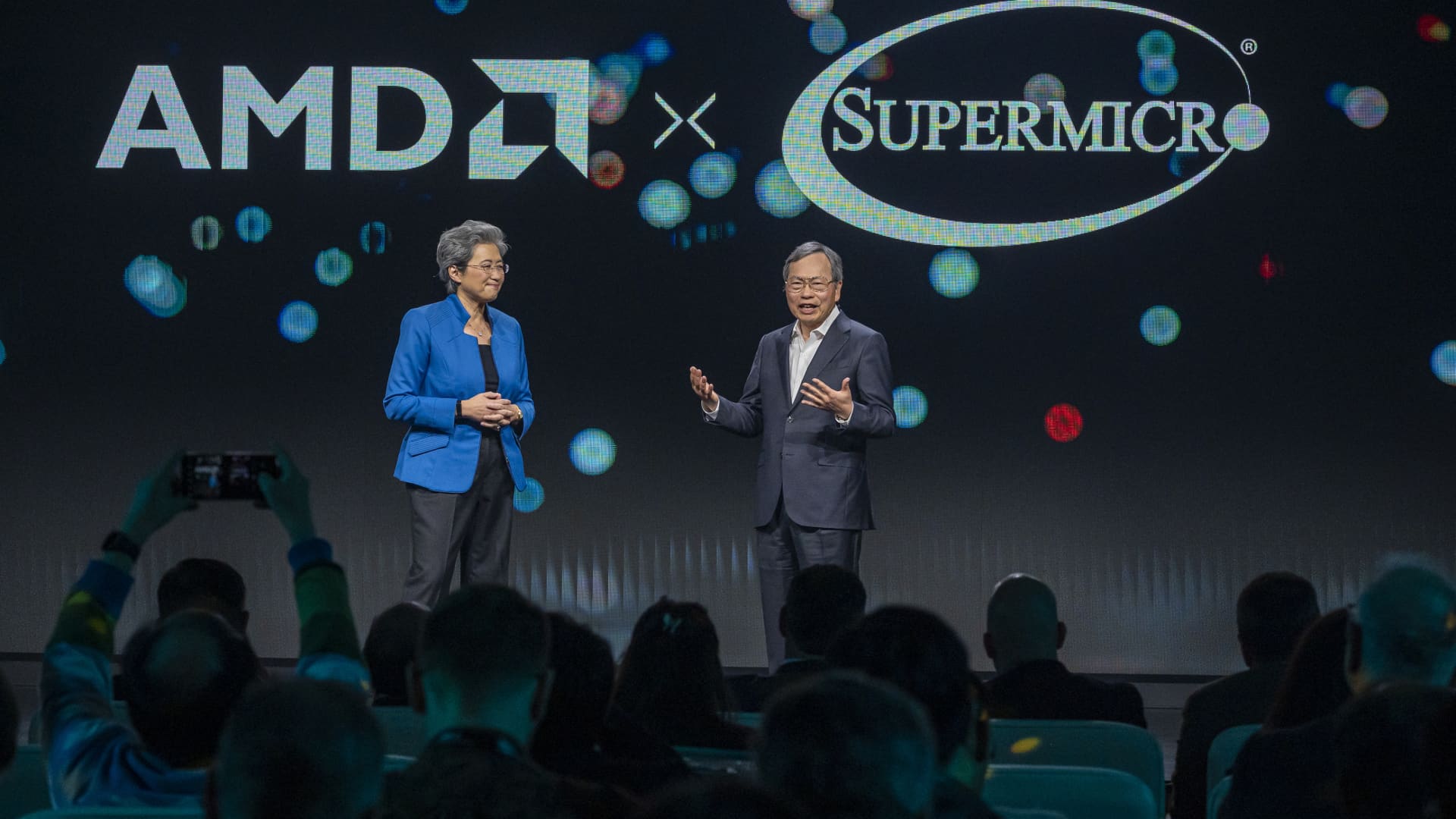Welcome to Disruptor 50 in the age of AI.
A whopping 34 of the 50 companies on our twelfth annual CNBC Disruptor 50 list say AI is “critical” to their business. These include companies in industries ranging from cybersecurity to agriculture. Thirteen of the 2024 disruptors call themselves “generative AI companies,” including five of the top ten on this year’s list.
These companies are upending the classic definition of disruptive innovation that shaped the creation of the Disruptor 50 list more than a decade ago. Mostly missing from the 2024 list is the idea of better, cheaper innovation. Instead, achieving disruptive innovation with AI requires huge piles of capital investment, inevitably leading to close partnerships with established giants.
Instead of Amazon’s disruptor Anthropic (which debuted on the 2024 Disruptor 50 list at No. 7), we have “Amazon-backed Anthropic,” which also received a $2 billion investment from Alphabet and is up against “Microsoft-backed OpenAI” ( No. 1 on the list for the second year in a row).
The venture capital community is also investing large sums of money into any startup that can claim to be part of the AI revolution. More than $90 billion has flowed into AI startups in 2023, according to PitchBook. Among the Disruptors, 17 have raised new funds in the past year. This includes 8 of the 13 generative AI startups that raised a total of at least $5.5 billion.
Overall, 2024’s Disruptors raised $70 billion — a rebound from last year’s $54 billion showing the power of AI — for a total implied valuation of $436 billion, the second-highest valuation on the list behind 2022’s $500 billion.
The willingness of incumbent giants to invest in these private disruptors also means that many of the companies on the 2024 Disruptor 50 list can afford to wait to go public, even as a long-closed IPO window begins to open. We expect first and second time Disruptors to be in the mix for many upcoming lists.
Here’s how we picked them in 2024:
All private, independently owned startups founded after January 1, 2009 were eligible to be nominated for the Disruptor 50 list. Nominated companies were required to submit a detailed analysis including key quantitative and qualitative information.
Quantitative metrics include company-reported data on workforce size and diversity, scalability, and sales and user growth. Some of this information is not recorded and is used for evaluation purposes only. CNBC also provided data from a pair of outside partners — PitchBook, which provided data on fundraising, implied valuations and investor quality; andIBISWorldwhose database of industry reports we use to compare companies based on the industries they are trying to disrupt.
CNBC’s Disruptor 50 Advisory Board—a group of 50 leading innovation and entrepreneurship thinkers from around the world—then ranked the quantitative criteria by importance and ability to disrupt established industries and public companies. This year, the board again identified scalability and user growth as the most important criteria, followed by sales growth and the use of disruptive technologies (including, most commonly, artificial intelligence and machine learning). These categories were given the most weight, but the ranking model is designed to ensure that companies must score highly across a wide range of criteria to make the final list.
Companies were also asked to submit important qualitative information, including descriptions of their core business model, ideal customers and recent company milestones. A team of CNBC editorial staff, including TV anchors, reporters and producers, as well as CNBC.com writers and editors, along with many members of the Advisory Board, read the submissions and provided holistic quality ratings to each company.
New for 2024, CNBC has formed a Disruptor 50 VC Advisory Board in an effort to leverage the valuable expertise of leading venture capital firms and investors. Each member of this new board evaluated a small group of finalists as an additional component of the qualitative review. Importantly, these VCs were not permitted to provide a valuation to any company in their firm’s own portfolios.
In the final stage of the process, the overall qualitative scores were combined with a weighted quantitative score to determine which 50 companies made the list and in what order.
This is our twelfth year, but we’re still seeing some “firsts” on this year’s list.
OpenAI is the first company to reach No. 1 in consecutive years, and only the second company to top the list more than once (SpaceX, No. 1 in 2014 and 2018, is the other). OpenAI exemplifies what it means to scale quickly and continue to innovate as you grow, and remains the most influential and powerful startup in the world.
And this year features the first ten-time Disruptor at Stripe. 2020’s #1 Disruptor continued to innovate despite a downgrade while staying out of the IPO market. However, the tenth time will be the last. Whether it goes public or stays private, Stripe will be “aged out” of Disruptor eligibility next year.
https://www.cnbc.com/2024/05/14/the-2024-cnbc-disruptor-50-how-we-chose-the-companies.html






